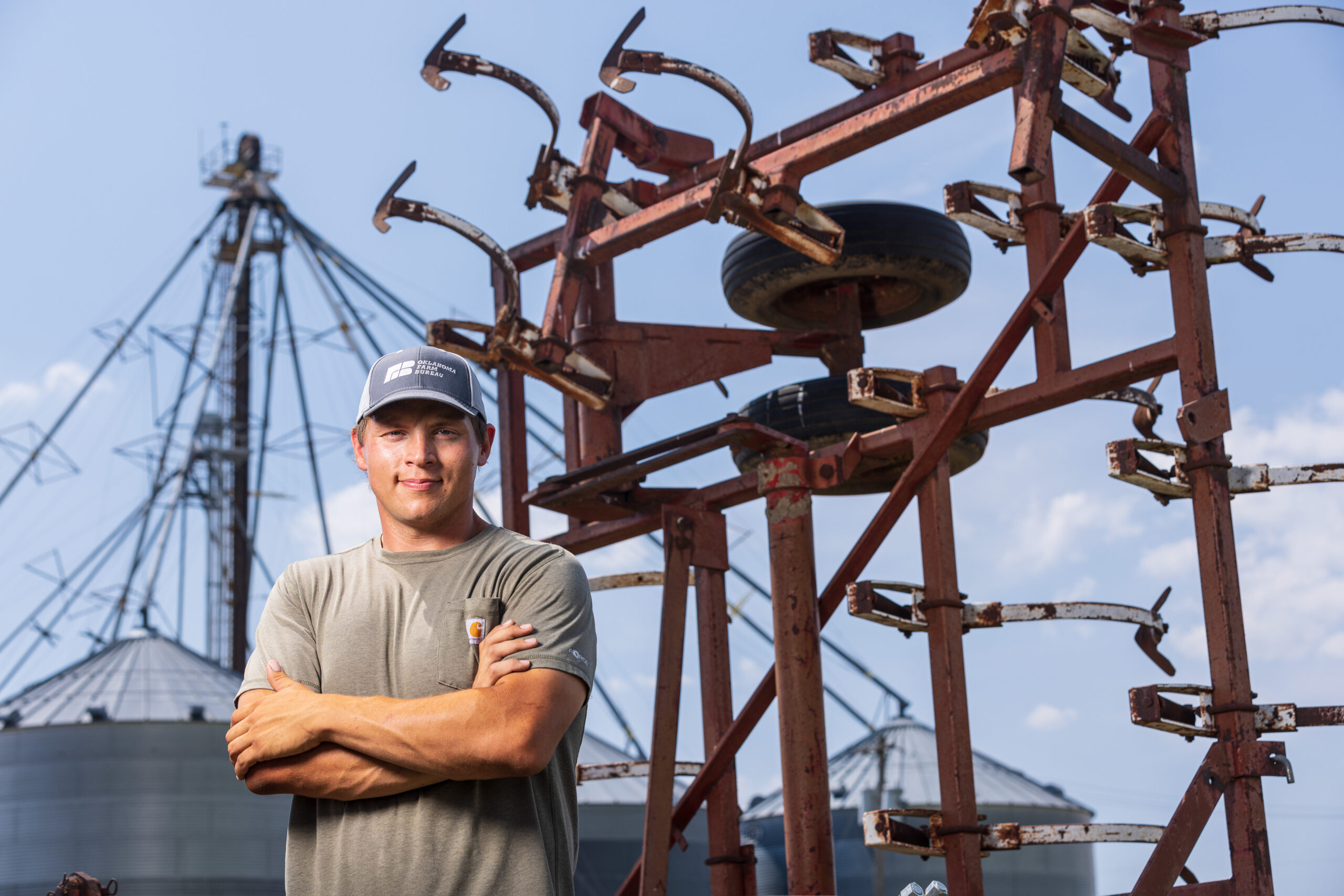
Dillon Johnson
This feature is part of Oklahoma Farm Bureau’s Cultivating Healthy Minds program, a member-driven initiative created to raise awareness in the agriculture community regarding mental health and wellbeing.
As much as one can plan for in life, twists and turns often appear in the path leading to the destination.
One Ottawa County Farm Bureau member planned a direction for his life, but a global pandemic quickly derailed his plans. Dillon Johnson was working as a legislative assistant in Washington, D.C., before the pandemic sent him back to his family’s farm and ranch outside of Afton to continue his work from home.
After coming home, Dillon soon came to the realization that the prestigious graduate program at the University of Cambridge he had been recently accepted into would be virtual for the fall 2020 semester – if not his entire time at the university – and suddenly had a hard choice to make. Because he was both working from home and helping out his dad on the farm and ranch, Dillon made the decision to transition to farming full time.
“After I got back to the farm and the honeymoon phase wore off in the first couple months of being back, I realized I had the next several years planned out, and it had taken a complete 180-degree turn,” Dillon said. “I found myself back farming, which I knew I wanted to do some day, but I did not think I would be doing it in my 20s.”
The new way of life Dillon found himself in quickly started to weigh on him as the plans he had been dreaming of for so long were now in the rearview mirror. Feelings of sadness turned into deeper feelings of depression, making it hard to get out of bed most days.
“Whenever I realized that these feelings of depression were not going to go away on their own, I thought to myself – what do people do when they are depressed?” Dillon said. “They go talk to a therapist. I looked into seeing one but quickly realized the closest clinical psychologist would either be in Joplin, Missouri, or Tulsa, which both can be an hour or more drive each way.”
Driving several hours a week to see a therapist while trying to help manage the family’s wheat, soybean, corn and cattle operation was not going to work out for Dillon, so he turned to other means to overcome his feelings.
“I opened up to my family because it was the most important,” Dillon said. “Having to go to my dad, who is also my boss, and say I am really struggling was difficult.”
Like many people, opening up and admitting he was in distress was one of the hardest parts of his mental health journey. He confided in those who mean the most to him and over time continued to share his story with more of his family and friends.
“After doing some research on the internet, the first thing I did after talking to my family was I got a notebook and started a gratitude journal,” Dillon said, recounting the beginning of his journey. “One of the first things I wrote was three things I am thankful for, and I still have this in my office.
“These things are the good things in my life. Anyone who has dealt with depression knows when you are in the middle of it, it feels like there are no good things in your life despite knowing you are lucky in a lot of ways. I am fortunate to have a lot of things, but it is hard to see that when are in the middle of it all.”
– Dillon Johnson
In addition to journaling and talking with family and friends, Dillon also takes the time to care for his body by exercising. While the road to recovery has not been a quick or easy process, Dillon continues to feel more like himself every day.
“This may not work for everyone, but I started meditating,” Dillon said. “I never thought it would be something I would be into, but the mindfulness helped me to put the voices in my head into perspective, control them and reframe that.”
Dillon first shared his struggles with his family and closest friends but now feels like he can be more open with others.
“I wish I would have talked to someone sooner, and when I talk to friends, they share the same sentiment,” Dillon said. “When you deal with it alone for so long, those thoughts of – ‘this is never going to get better’ or ‘I cannot handle this’ – are not going to go away by themselves. I am not saying you have to scream it from the corner of the street but find the most trusted person in your life.”
While Dillon did not envision himself back on the family farm at this stage in his life, he continues to care for his mental wellbeing every day.
“I think there is strength in being aware and acknowledging that I have this under control,” Dillon said. “I know that is still there, but there is power in having power over the depression.”
